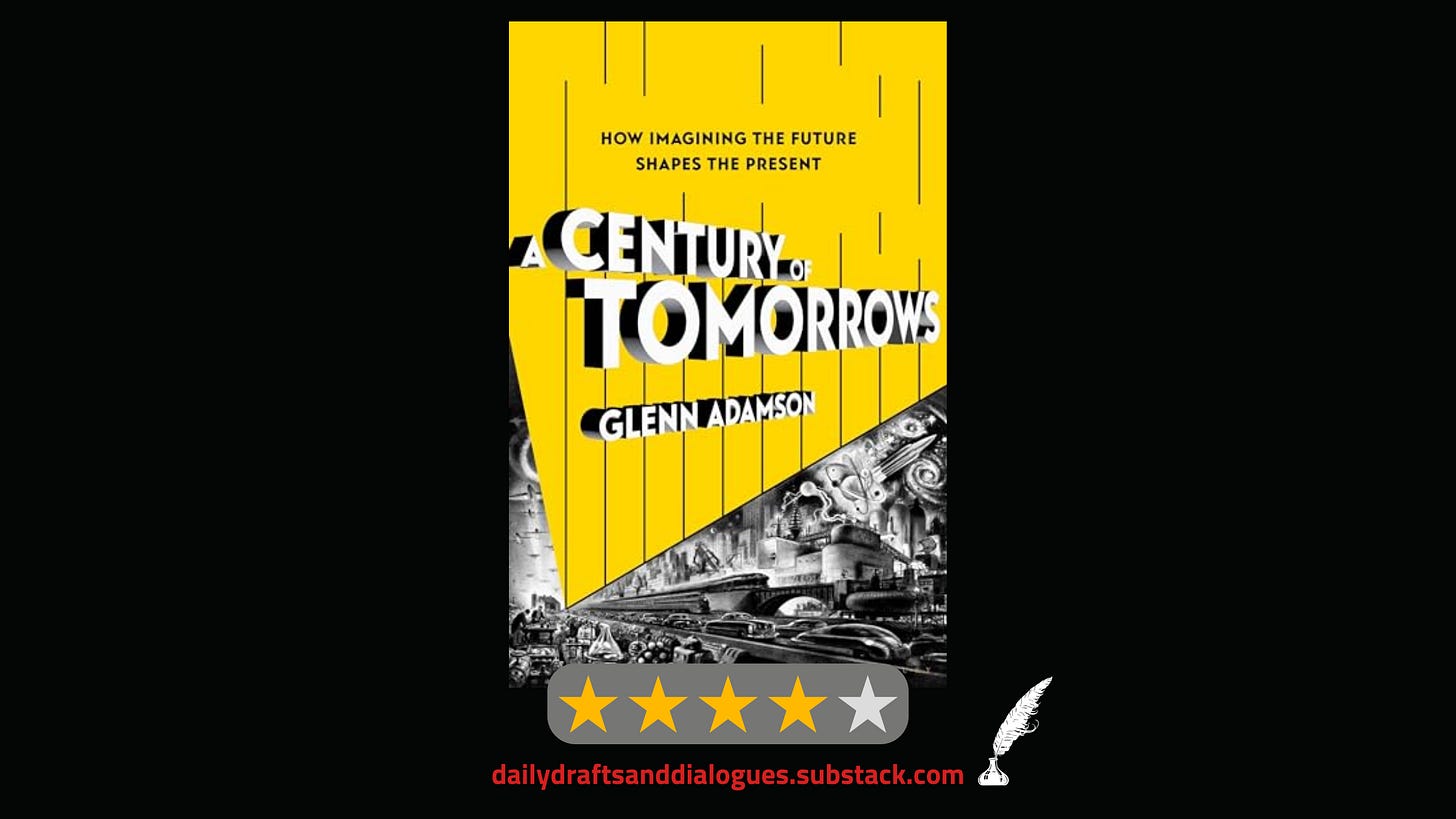Book Review: A Century of Tomorrows
Here’s my review of A Century of Tomorrows by Glenn Adamson. Don’t forget to leave a comment if you’ve read it or plan to read it soon.
A Century of Tomorrows: How Imagining the Future Shapes the Present by Glenn Adamson is packed full of facts and information on the movers and shakers of futurology. The book starts with detailing how the turn from spiritual and religious beliefs to come to terms with the future shifts to a more secular and modern understanding of the future during the …



